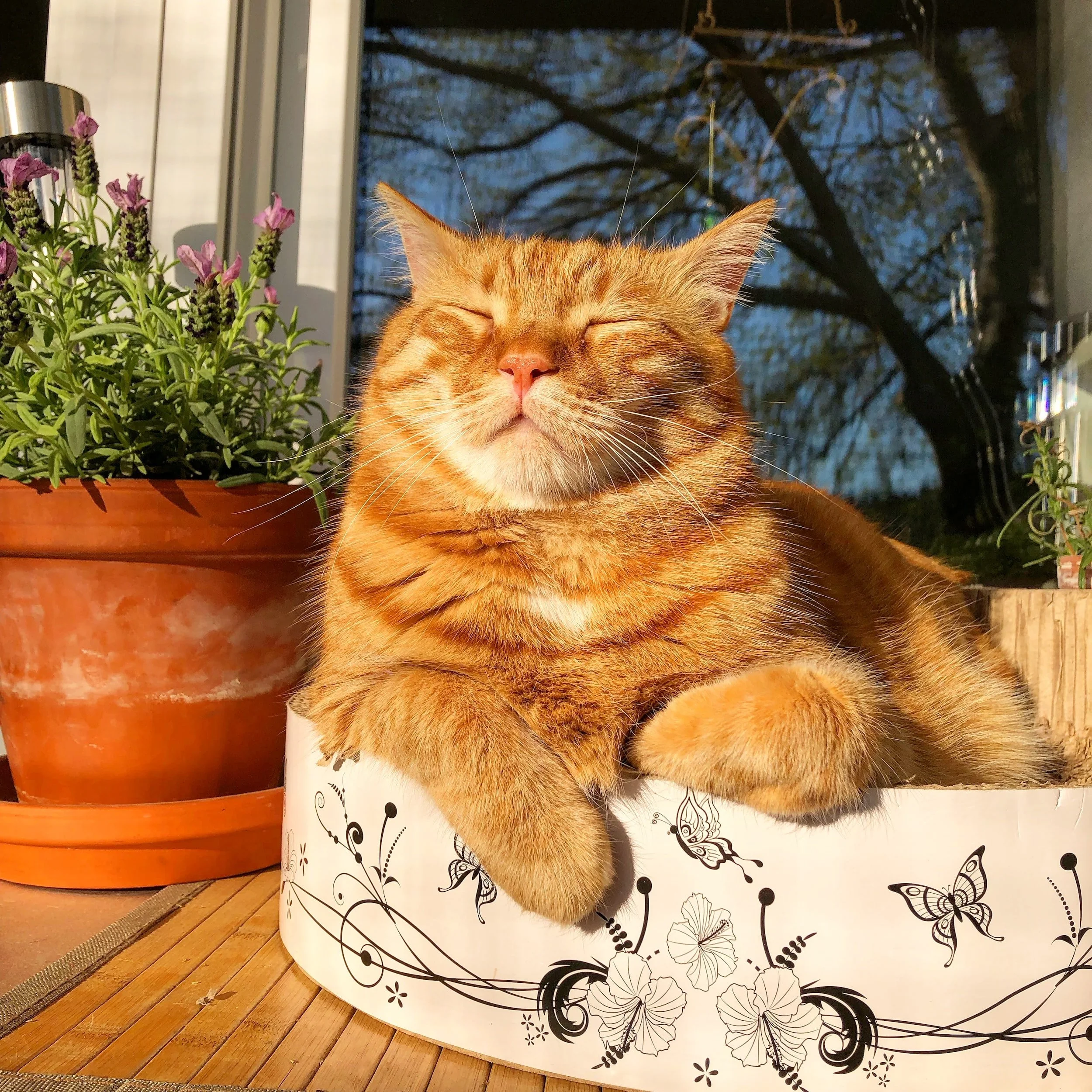Does your pet snore? Is it a gentle rumble or is it so loud it wakes you up at night? Whilst snoring can be normal and common it pets, it can sometimes indicate a medical condition. So, what are the common causes for snoring in pets and when should you consider taking your pet to the vet.
What is snoring
Snoring is the sound that occurs when air flows past relaxed tissues in your pets nose, mouth or throat causing them to vibrate as they breathe. Anything that narrows or blocks these airways will change the flow of air, making the tissues vibrate more, resulting in a louder snore.
Common causes of snoring in pets
There are a variety of common causes of snoring in pets:
Sleep position – our pets can sleep in some strange positions. Some of these positions, can place their neck and head in a position that makes them more prone to snoring. Pets that sleep on their backs can often snore as their tongue can fall back against their throat, partially blocking their airways.
Obesity – overweight pets are more prone to snoring due to the excess fat that can collect in their neck or throat area, narrowing their airways and restricting airflow during sleep.
Allergies – allergies and irritants such as trees, grasses, pollens, dust and insects can cause nasal congestion and swelling in the airways, restricting airflow and resulting in more frequent and louder snoring.
Respiratory issues - pet asthma, respiratory illness and infections can all lead to snoring in your pet.
Obstructions – pets are curious by nature. They love to investigate and explore and part of this includes discovering new sights, smells and tastes. This can sometimes lead them into trouble especially when foreign objects become stuck in their nasal cavity. Dirt, food, sticks, plant matter and other objects can all become lodged in your pet’s nose and result in snoring.
Dental issues – an abscessed tooth or growth in the mouth can cause inflammation and swelling in nearby tissues, which can restrict airways and cause snoring.
Breed – certain breeds are predisposed to snoring. This can include brachycephalic breeds which have a broad short skull with a short snout. This results in a short breathing passage and narrow nostrils which can lead to snoring.
When should I be concerned about my pets snoring?
Snoring can be a regular occurrence and common for many pets.
However, if your pet doesn’t normally snore and then starts to suddenly it is worth taking them to the vet to have them checked out. This is the same case if your pets regular snoring starts to worsen.
If your pet has any other concerning symptoms such as breathing difficulties, swollen facial areas, lethargy or loss of appetite contact your vet immediately as these are all warning signs of a greater problem.
If you are worried about your pets snoring, your vet can help to identify the cause and discuss possible solutions to help them rest easier.
How can I help my snoring pet?
Change their sleeping position – often gently nudging your pet to encourage them to change their sleeping position can stop or reduce their snoring. You can also make their sleeping area more comfortable with plenty of room to stretch out and pillows to elevate their head.
Exercise & diet – Overweight pets are more prone to snoring. All pets need exercise and playtime to burn calories, stimulate their minds and stay healthy. Your pets exercise needs will vary based on their breed, lifestyle, age, size or health requirements. Ask your vet if you have any questions about exercising your pet. Nutrition is an important part of pet care. A complete and balanced diet is essential for your pets health and wellbeing.
Weight loss – If you think your pet is overweight, you should book in with your local vet to have them assessed. Prior to any weight loss program, your vet will need to examine your pet to check their general health and rule out any underlying health issues that could be causing the weight gain. Your vet can then give you an estimate of your pet’s ideal body weight and discuss a tailored weight loss program suited to their individual needs.
Speak to your local vet – if there is no obvious reason for your pets snoring, they start snoring suddenly or their regular snoring starts to worsen, speak to your local vet. They can check for any underlying health concerns, identify the cause of your pets snoring and discuss possible solutions to help them.
Are you concerned about your pets snoring? Call us on 03 8784 4444.






